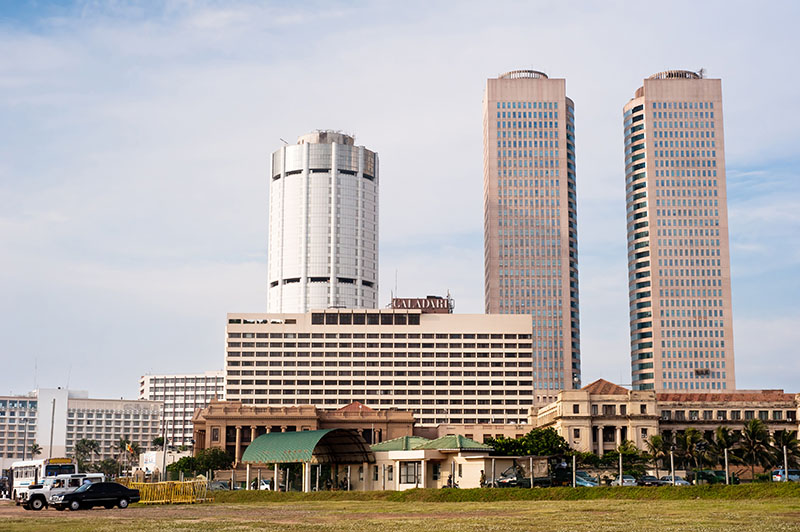(Bloomberg) -- Sri Lanka began counting votes in an election that will decide whether President Gotabaya Rajapaksa can push through contentious constitutional changes to restore sweeping executive powers to his office.
Rajapaksa -- who has run a minority government since he won a November presidential poll and appointed his brother and former strongman leader Mahinda as the prime minister -- wants to win a two-thirds majority in the island’s 225-seat legislature. That will allow him to bolster the role of the presidency to give him greater influence over the judiciary, military and bureaucracy.
A constitutional amendment under former Prime Minister Ranil Wickresinghe’s United National Party government had clipped some of those presidential powers.
Gotabaya’s Sri Lanka Podujana Peramuna Party faced a weakened opposition in this parliamentary election as Sajith Premadasa, his main rival in the presidential poll, broke away from the UNP earlier this year and set up a new party with some of its younger and more progressive members.
“A two-third majority would lead to a president with absolute political power -- the greatest concentration we have seen in Sri Lanka -- depleting power of the prime minister,” said Dayan Jayatilleka, Sri Lanka’s former permanent representative at the UN. “The hope with a simple majority is for the functioning of a normal political system.”
Fiscal Fallout
Wednesday’s vote was initially set for April 25 after President Rajapaksa called for early elections in March but was postponed twice due to health and safety concerns, resulting in an extended period when a caretaker government made policy decisions.
Shortly after his victory, Rajapaksa announced tax cuts and a moratorium on debt for small businesses in order to kick-start the economy battered by political turmoil since late 2018 and last year’s Easter Sunday terror attacks. The turnaround in fiscal consolidation measures however led to the expiration in June of a $1.5 billion International Monetary Fund program without completing disbursements, even as the nation had to contend with a new challenge: the Covid-19 pandemic.
“In terms of policy implications, an SLPP victory will broadly maintain the status quo,” risk consultancy Eurasia Group said in a note. “Post-election priorities will include managing the fiscal fallout from the pandemic, with Sri Lanka seeking debt relief from multilateral and bilateral donors, and trying to balance ties with China and India despite growing tensions between the two Asian giants.”
The Rajapaksas leaned toward China during Mahinda’s decade as president which ended in 2015.
India and China have continued to jockey for influence on the South Asian island nation, stepping up efforts to help Sri Lanka deal with the pandemic. While China has led in assisting the island nation on the medical front, India has been quicker to provide financial support, including a $400 million swap agreement.
©2020 Bloomberg L.P.
